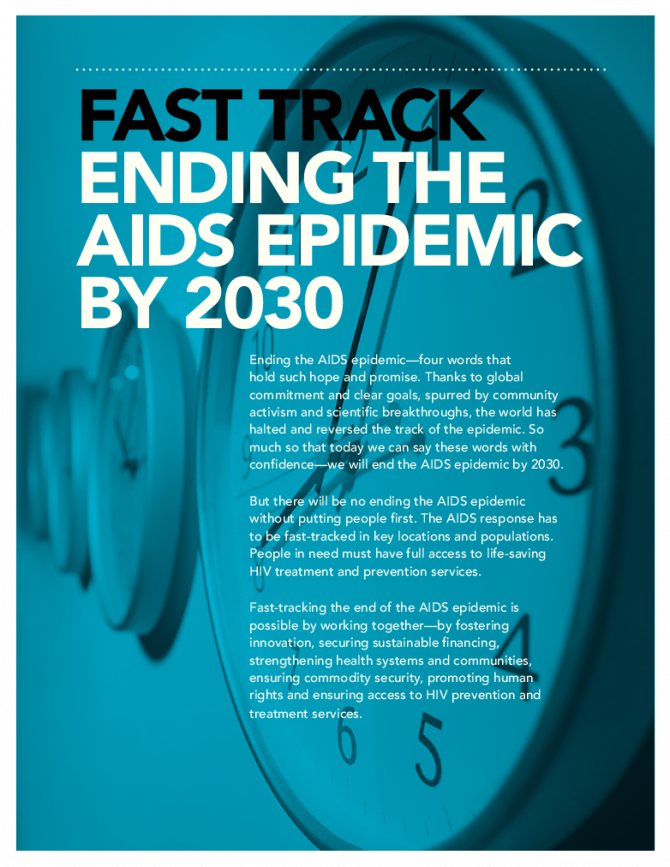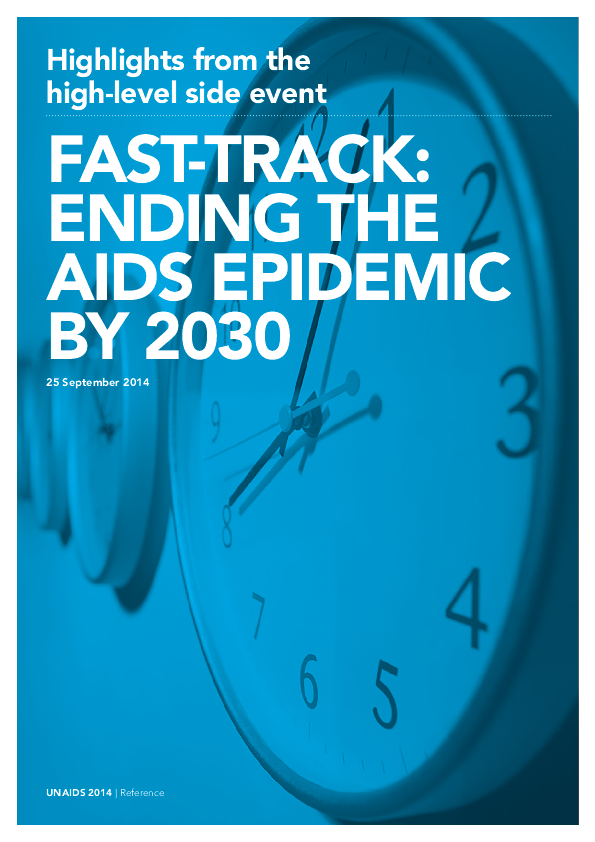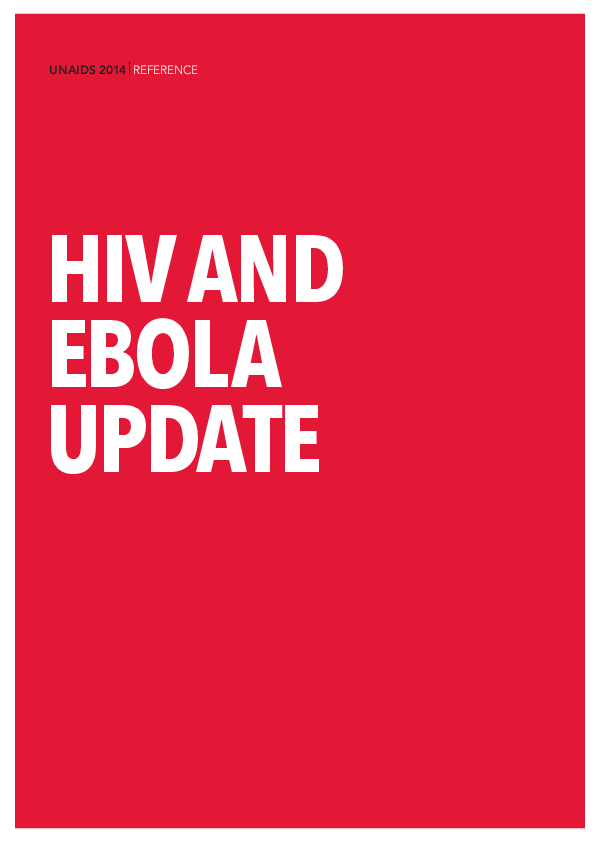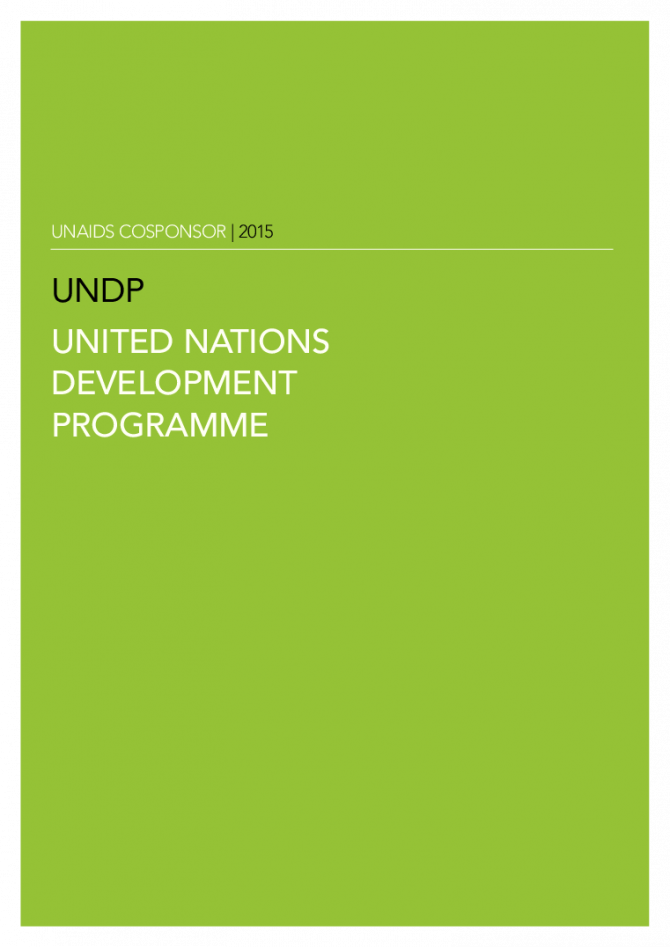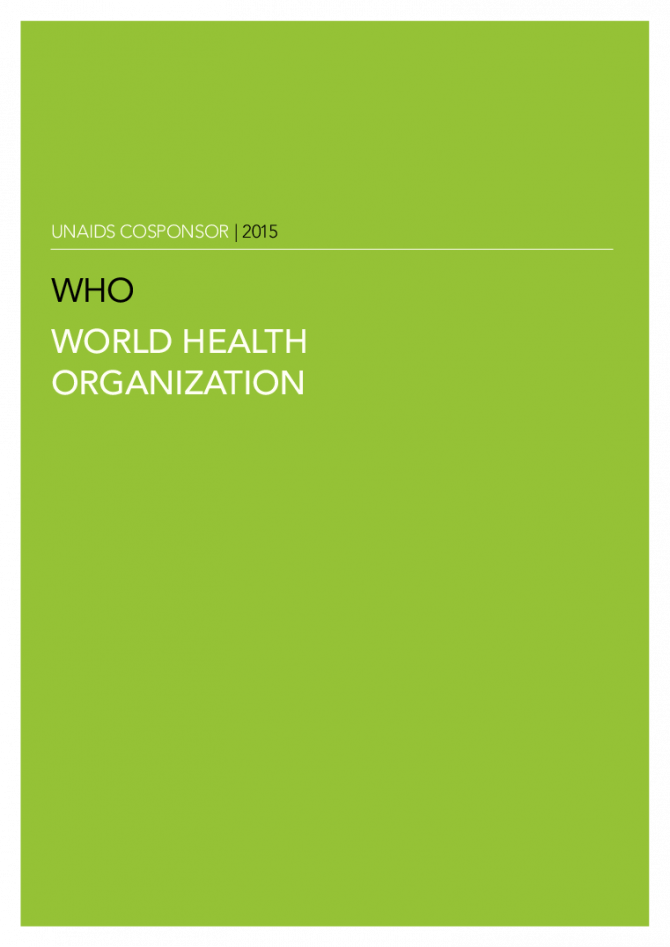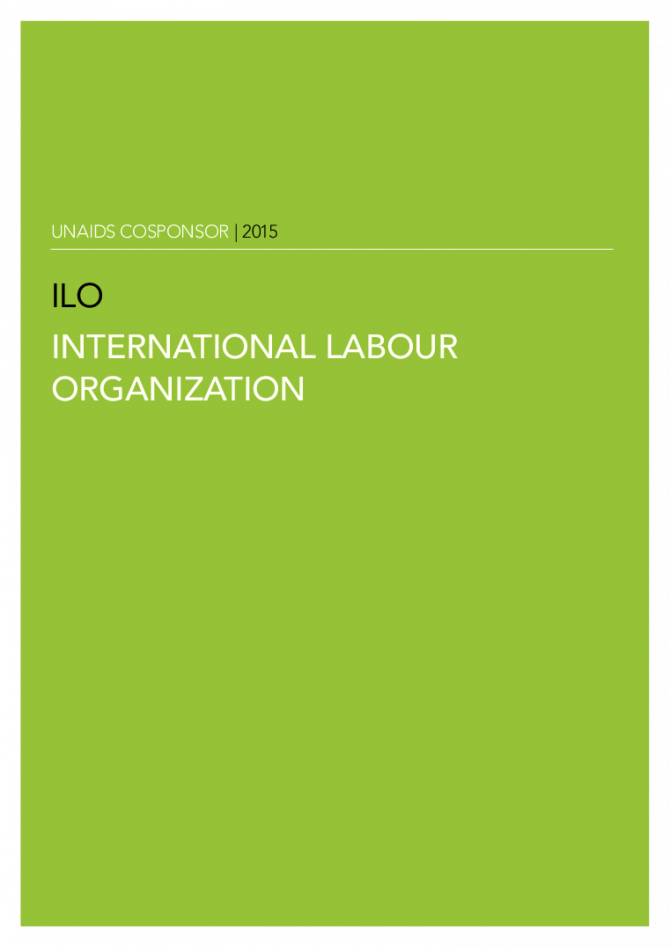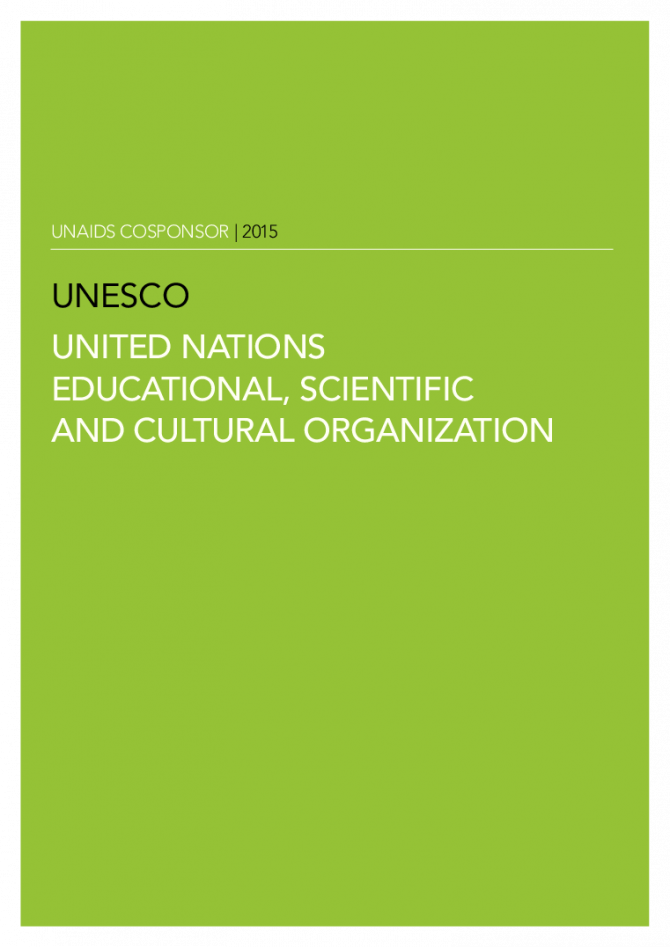Documents
Fast track: Ending the AIDS epidemic by 2030
25 September 2014
Documents
HIV and Ebola update
03 November 2014
It is essential that all people, including people living with HIV, are able to access health services and ongoing treatment. If people living with HIV who are on ART stop abruptly because they cannot access new supplies they could rapidly become unwell, drug resistance may build and the chances of onward transmission of the virus would increase.
Documents
UNAIDS Cosponsor | 2015 | World Food Programme
01 January 2015
Nutrition and food security are critical components of care and support for people living with HIV and TB patients. In line with its 2010 HIV and AIDS Policy and in response to the UNAIDS 2011–2015 Strategy, WFP’s HIV work has a strong focus on linking food and health systems through the provision of nutrition and food assistance for better health outcomes, such as nutritional recovery for malnourished people living with HIV and TB patients, retention in care programmes and treatment success. WFP provides support at the individual and household levels—including food, but also cash and vouchers—to enable improved access and adherence to treatment.
Documents
UNAIDS Cosponsor | 2015 | United Nations Development Programme
01 May 2015
UNDP is a founding Cosponsor of UNAIDS, a partner of the Global Fund to Fight AIDS, Tuberculosis and Malaria (Global Fund) and a cosponsor of several other international health partnerships. UNDP’s work on HIV, health and development leverages the organization’s core strengths and mandates in human development, governance and capacity development to complement the efforts of specialist health-focused United Nations agencies.
Documents
UNAIDS Cosponsor | 2015 | World Health Organization
01 January 2015
The organization leads the global health sector response to the HIV epidemic. As a Cosponsor of UNAIDS, WHO takes the lead on HIV treatment and care and HIV/tuberculosis coinfection, and jointly coordinates work on the elimination of mother-to-child transmission of HIV with the United Nations Children’s Fund (UNICEF).
Documents
UNAIDS Cosponsor | 2015 | International Labour Organization
01 January 2015
As a Cosponsor of UNAIDS, and under the UNAIDS Division of Labour, ILO is the lead agency on HIV workplace policies and programmes and private sector mobilization. ILO recognizes that HIV has a potentially devastating impact on labour and productivity and represents an enormous burden for working people, their families and communities in a number of ways. For example, HIV-related stigma and discrimination threaten their fundamental rights at work and undermine their opportunities to obtain decent and sustainable employment. The workplace offers a unique entry point to reach this large, vital and productive segment of the population. The organization has been involved in the HIV response since 1998 through the world of work.
Documents
UNAIDS Cosponsor | 2015 | United Nations Educational, Cultural and Scientific Organization
01 January 2015
UNESCO is one of the six founding UNAIDS Cosponsors. Under the UNAIDS Division of Labour, UNESCO is responsible for leading efforts to support countries in scaling up the education sector response to HIV. With over 70 offices, institutes and regional bureaux around the world, UNESCO has more than 50 staff members dedicated to working on HIV and health education. Of these, the majority are National Programme Officers based in countries that UNAIDS has prioritized for high-impact interventions. The agency draws on its unique spectrum of competencies across the diverse spheres of education, the sciences, culture, communication and information to push for a truly multisectoral and comprehensive response to HIV.
Documents
Letter to partners 2012: Michel Sidibé, Executive Director, UNAIDS
02 April 2012
If the history of AIDS has taught us anything, it is that epidemics don’t occur in a vacuum. HIV has exploited our social and political shortcomings—and it has shown again and again that an effective response must span the health sector and go beyond it to address the laws, attitudes and economic injustices that make infection more likely and more lethal.


